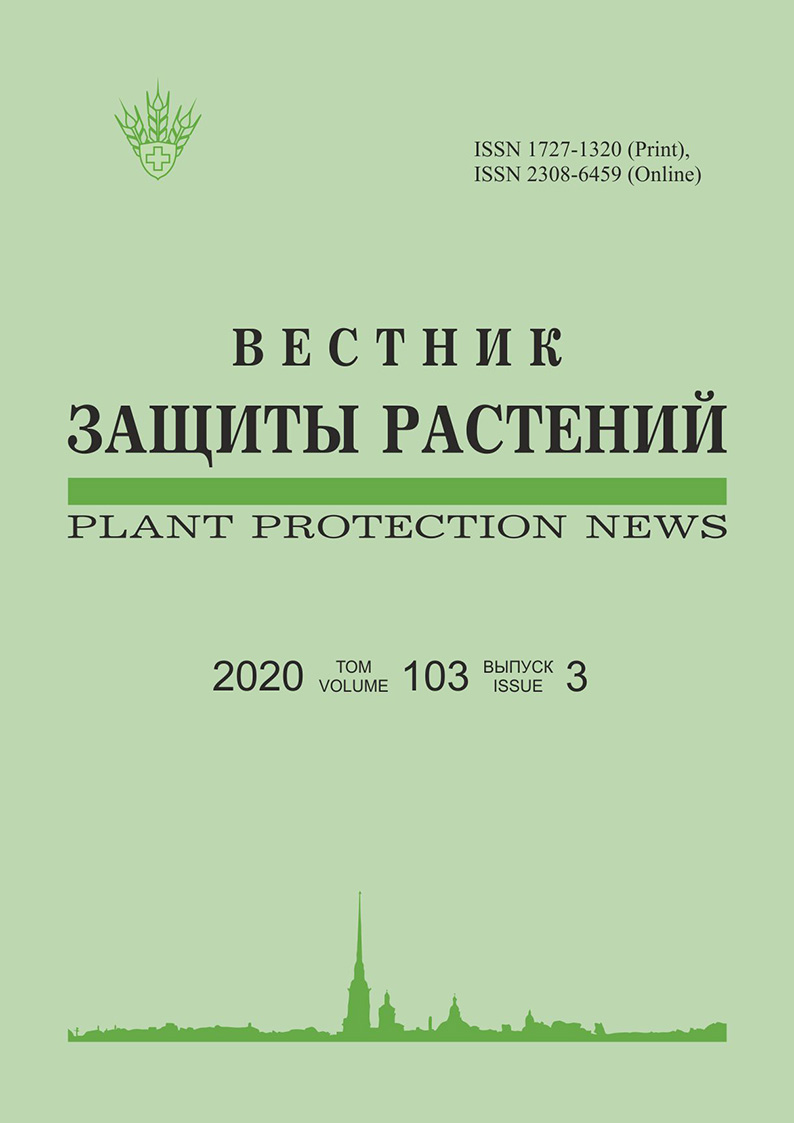Biology and resistance of phytopathogenic fungus Ilyonectria crassa to fungicides
Keywords:
potato pathogens, fludioxonil, difenoconazole, azoxystrobin, storage of potato, potato diseasesAbstract
It has been recently shown that the ascomycete fungus Ilyonectria crassa can infect potato tubers. In this work, the biological characteristics and resistance to some fungicides of the “potato” I. crassa strain were analyzed for the first time. The sequences of the species-specific regions of the tested strain (rRNA and protein-coding genes) were identical to those obtained earlier for the fungi isolated from the roots of narcissus, ginseng, aspen, beech, as well as lily bulbs and tulip leaves. Apparently, many wild and garden plants can be carriers of I. crassa. The investigated strain infected tomato and potato slices but did not infect the whole intact tomato fruit and potato tuber. This demonstrated that I. crassa is a wound pathogen. Evaluation of resistance to fludioxonil, difenoconazole and azoxystrobin on a nutrient medium showed high efficacy of these compounds. The EC50 index, i.e. the concentration of the fungicide slowing the rate of radial growth of the colony by 2 times as compared to the non-fungicidal control, was equal to 0.4; 7.4 and 4 mg/L, respectively. The possibility of disease induction by I. crassa should be considered for evaluation of potato tuber infections and development of protective measures.



